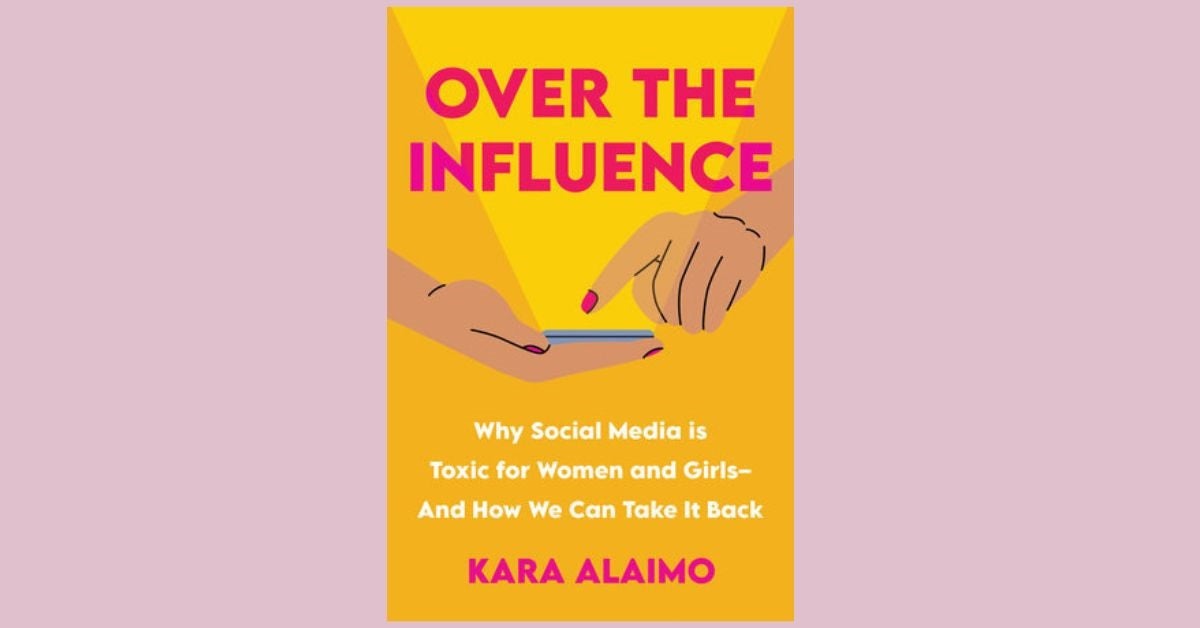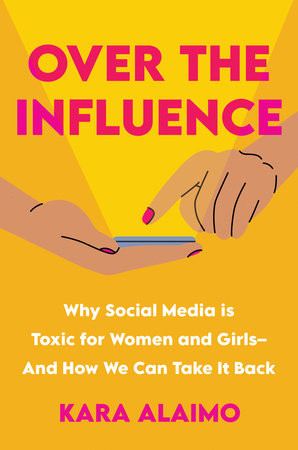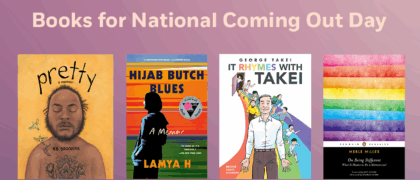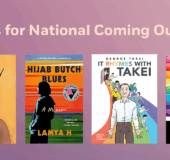By Kara Alaimo, PhD, Associate Professor of Communication at Fairleigh Dickinson University
Dear Educators,
In the early days of the Internet, The New Yorker ran a cartoon of a dog in front of a computer telling another dog, “On the Internet, nobody knows you’re a dog.” The thinking was that the Internet – and then social media – would be places of extreme equality because, when we were behind our screens, people wouldn’t be able to see markers for offline discrimination like our race, gender, or sexual identity. Unfortunately, I probably don’t have to tell you that things didn’t exactly work out that way.
In Over the Influence, I explain how social media is affecting every aspect of the lives of women, girls, and nonbinary people – and how we can fix it. You’ll find this book to be hugely intersectional, exploring how gender intersects with race, class, and sexual identity to empower some people on social networks while leaving others the victims of unthinkable discrimination, abuse, and violence.
I explain how social media can affect the body image and mental health of teen girls – and offer specific advice for girls and their parents on how to handle their use of it. I also explain how the deck is often stacked against women on dating apps – and why so many of the people women are matching with these days aren’t even real. And I reveal how online misinformation about pregnancy and parenting is specifically designed to exploit women’s vulnerabilities.
I also explore how the world is judging women more than ever before thanks to social media – especially for our appearances on photo-driven apps. Before, a girl might have gotten snickers behind her back for her choice of prom dress. But now, thanks to social media, people across seas and continents can all make vicious comments about her body – before she even makes it into the limo.
I explain why women who use social media to share their professional expertise often end up with fewer followers, reposts, and resulting opportunities than their male counterparts. I explore why, contrary to popular perception, most influencers (predominantly women) never earn a living wage because they’re often exploited by brands. And I examine why the people who manage the social media accounts of brands (predominantly women) are typically paid a fraction of the salaries of people who work in so-called “tech” jobs (predominantly men).
I also explain the new forms of sexual violence women are experiencing as perpetrators learn how to exploit women without ever having to leave their homes. And I discuss how the misogyny that is being stoked online is spilling over into offline violence against women. According to the CDC, in 2021 girls were nearly 17 percent more likely to say they’d been forced to have sex than they were in 2011 – which I believe is a result of the culture created by the hateful, violent content that social networks knowingly host.
I also explain that many women are fleeing social media because of the abuse we experience and witness there, robbing them of valuable opportunities. And I discuss how the kind of women’s empowerment promoted by brands on social media – telling us we should feel beautiful, act confident, and buy the right triple moisture body wash – is a form of fake feminism. But all this talk of “feminism” has people so fatigued that it’s ushered in an epic backlash, radically reducing our rights and power. That helps explain why Donald Trump was elected president, Roe v. Wade was overturned, bro culture is back in Silicon Valley, many of the men pushed out by the #MeToo movement are back, and women are less likely to consider running for office than they were two decades ago.
But it doesn’t have to be this way. I explain exactly how users, lawmakers, and tech companies can solve these problems. For users, this means radically changing who we follow, what we share, and what we do when we witness sexism and misogyny online. Tech companies can make simple fixes like telling us when the photos we see have been altered to remind us that the filtered images friends and influencers post so often aren’t real. And lawmakers can crack down on social apps that let fake, potentially deadly news go viral.
Over the Influence is ideal for courses in gender and communication. In my courses on the social impact of social media and gender and communication, after exploring these problems, I assign my students a paper in which they are asked to explain how they would create a new social network that would be designed to mitigate the problems we study. I find that my students have little trouble coming up with brilliant ideas – and I trust that the same will be true of yours.
I hope this book will be useful for your courses that explore gender and the social impact of social media, especially upon women and people of color – and, importantly, what we can all do about it.
Warm regards,
Kara Alaimo, PhD

Kara Alaimo, Ph.D. is a communication professor at Fairleigh Dickinson University. She writes frequently for CNN Opinion about the social impact of social media and issues affecting women. A former communicator at the United Nations and in the Obama administration, she lives in New Jersey with her family. For more information, visit www.karaalaimo.com and follow her @karaalaimo.






